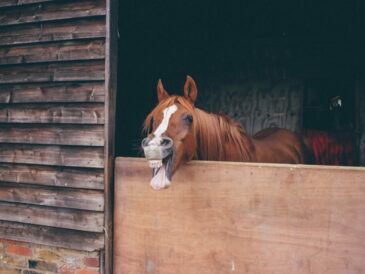Every holiday season, millions of families across the United States partake in the cherished tradition of selecting and decorating a Christmas tree. For some, it’s a joyful outing to a tree farm, while others opt for the convenience of an artificial tree. However, lurking behind the festive spirit is a shadowy issue: Christmas tree poaching. In this exploration, we’ll dive into the surprising world of tree theft and the inventive strategies employed to thwart these would-be Grinches.
The National Christmas Tree Association reports that 25–30 million live trees are sold during the holiday season in the United States annually. To support this festive demand, approximately 350 million trees are cultivated on Christmas tree farms across the country. However, there’s a dark side to this tale – the unlawful chopping down of trees, often fueled by the allure of a free holiday centerpiece.
While the exact number of illegally harvested Christmas trees is challenging to pin down, it’s widely believed that Christmas tree poaching is a prevalent issue in regions where the holiday is celebrated. With real Christmas trees ranging from $40 to $50, and artificial trees often more expensive, the temptation to resort to criminal activity to deck the halls can be overwhelming for some.
Fending Off the Christmas Tree Thieves
Tree farm managers and foresters responsible for the care of these festive evergreens have devised a range of creative strategies to deter would-be Christmas tree poachers. These tactics aim to preserve the joy of the season while safeguarding these natural treasures.
One of the most intriguing deterrents employed to protect Christmas trees is fox urine. In the winter wilderness, the odor may go unnoticed, but when warmed indoors, it releases volatile compounds that create an overwhelming stench. Compounds like trans geranylacetone, 6-methyl-delta-5-hepten-2-one, 2-phenylethyl methyl sulfide, and delta-3-isopentenyl methyl sulfide are found in fox pee and are believed to facilitate intra-species olfactory communication among foxes.
Communities such as Lincoln, Nebraska, have used fox urine mixed with both stinky (like skunk essence) and non-stinky (such as glycerin and water) substances. This concoction is sprayed on trees that might be attractive to Christmas tree poachers. Combined with signs explaining the foul odor and its purpose, the use of fox urine has proven highly successful in reducing tree theft. In 2012, Lincoln reported zero stolen trees, a testament to the power of this unconventional deterrent.
Skunk spray is another unconventional method to deter tree poaching. In regions like Washington State University, where illegal tree chopping was once prevalent, applying skunk scent to trees has significantly curbed this activity. While the smell is strong and unpleasant, it dissipates after a few days, especially in cold weather. The short-lived discomfort serves as a strong deterrent to would-be tree thieves.
At Cornell University, groundskeepers adopted a different approach by targeting the sense of sight rather than smell. They spray some of their trees with a non-toxic, vibrant pink paint made from a mixture of red food coloring and hydrated lime. After the holiday season ends, these painted pines continue to display their pink glow for about a month. This eye-catching tactic serves as a deterrent, making the trees less appealing to potential poachers.
Not all tree-cutting is unlawful, as some individuals obtain permits to cut their own Christmas trees. National forests in the United States offer tree-cutting permits for a reasonable fee, typically ranging from $10 to $20, starting in November. These permits grant individuals the freedom to choose and cut their ideal Christmas tree, with a few exceptions and regulations, such as tree size and distance from roads and campsites.
However, breaking permit rules can result in severe penalties, including fines of up to $5,000 or jail time of up to six months. Additionally, tree poaching can lead to criminal penalties under the Federal Lacey Act, which addresses illegal tree cutting and other forms of poaching related to animals, fish, and plants. The penalties can amount to over half a million dollars in fines and five years in prison, with civil penalties reaching up to ten thousand dollars.
The Cost of Tree Poaching
Tree poaching isn’t limited to the United States. Globally, it’s estimated that tree poaching leads to a loss of ten to fifteen billion dollars’ worth of timber each year. The environmental and economic consequences of this illegal activity extend far beyond the holiday season.
Beyond the legalities and deterrents, the Christmas tree industry plays a significant role in employment. Approximately 15,000 Christmas tree farms in the United States provide jobs for roughly 100,000 people. These farms not only contribute to holiday traditions but also support livelihoods in rural communities.

In the annals of American history, the power of the President to grant clemency, including…

The debate around whether white chocolate can be classified as true chocolate is one that…

Cockroaches are renowned for their incredible adaptability and resilience, traits that have given them a…
Bonus Facts
As we unwrap the layers of this intriguing tale of Christmas tree poaching and protection, it becomes clear that safeguarding these iconic symbols of the holiday season is a shared responsibility. While some individuals may succumb to the temptation of taking a tree without permission, communities and tree farmers continue to employ innovative strategies to ensure that the joy of Christmas is preserved for all, while also upholding the law and respecting nature.
This holiday season, as you gather around your beautifully adorned tree, you can appreciate the efforts made to protect these evergreen treasures, ensuring that they remain at the heart of our festive celebrations for years to come.





